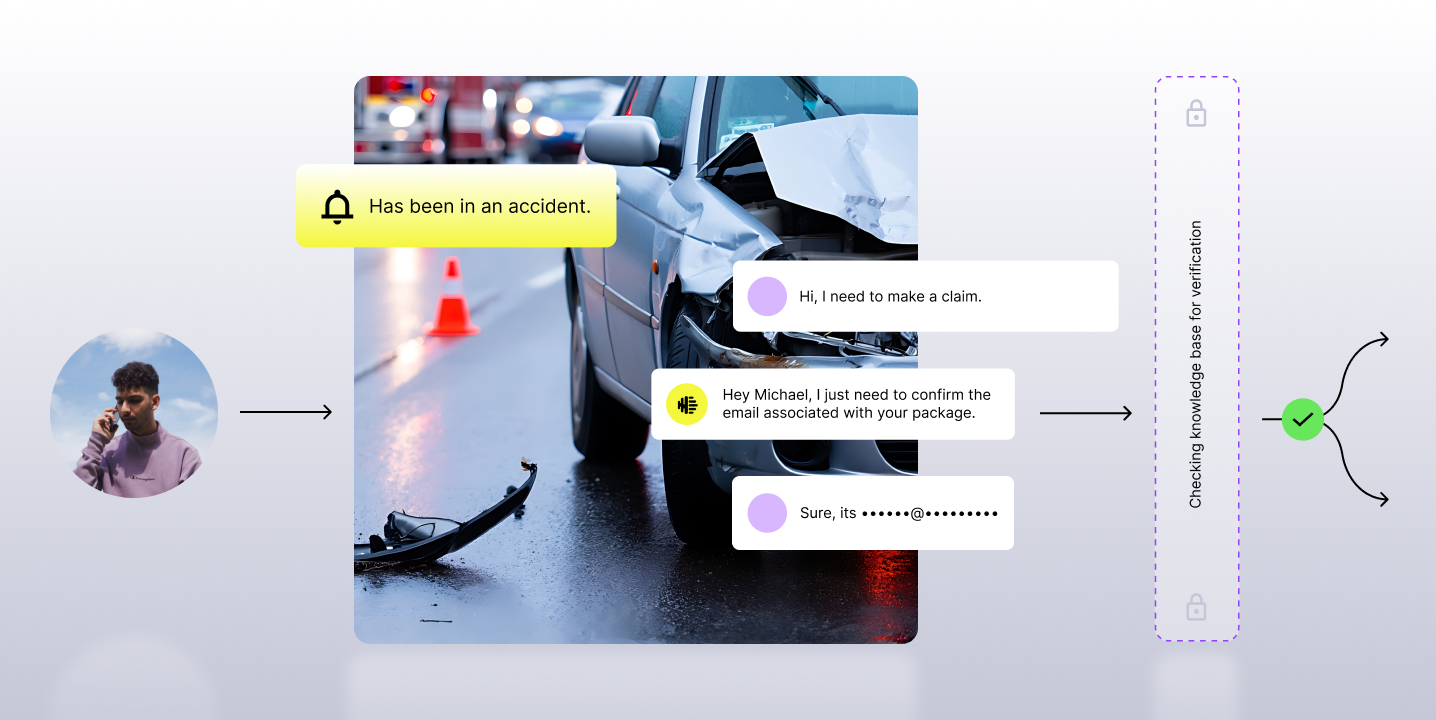For more than 40 years, contact center quality management (QM) has been a foundational part of enhancing agent performance, ensuring compliance, and improving the customer experience. Although automation has grown across contact centers with strides in IVR and chatbots, phone support is still an essential function. At the end of the day, customers often just want to talk to a human.
In fact, 44% of people surveyed in the U.S. still prefer phone or voice as their primary customer service channel. That's 21% higher than any other channel available, with live chat coming in second at 23%.
But today, the QA programs in contact centers are marred with inefficiencies across entire organizations.
- Low Coverage Volume: Analysts actually analyze only 1-2% of recorded voice calls. As a result, on average, 2-4 randomly selected calls per agent are quality checked per month. It begs the question, what if you happen to QA a top agent's two worst calls of the month?
- Manual Processes: In most cases, the quality assurance process is entirely manual. Meaning, analysts use multiple systems and spreadsheets just to quality check a single call.
- Subjective Scoring: Analysis is subjective - it's up to the scorer. Every analyst is going to score a call differently. Scoring isn't scientific and unbiased.
- Quality of Agent Feedback: With a subset of the total insights, training teams cannot effectively tailor coaching programs relevant to individual agents. As a result, teams are compelled to train entire teams on general topics.
- Lack of Benchmarking: Performance standards aren't clear. How can teams effectively improve contact center performance if they don't have enough data to make those data-driven decisions?
With poor quality automation, call scoring, and as a result, suboptimal training programs, organizations are not harnessing the wealth of insights around customer sentiment and agent performance, and missing out on ways to better enhance agent performance.
As a result, QA in the contact center is ripe for disruption.
What is Call Center Quality Management?
Call center quality management is technology that empowers a call center to analyze and track agent performance across 100% of customer interactions. Insights and data derived from the technology is used to mitigate compliance risk, influence coaching programs, and uncover business drivers for leadership.
6 Call Center Quality Management Predictions
Quality programs, driven by contact center AI, are growing more automated, more accurate, more efficient, and more relevant to agents. It's benefiting organization leaders across customer experience, compliance, and learning and development, to supervisors and managers, to quality analysts, to the agents on the front lines. Here are 6 predictions for the future of call center quality management:
1. More call center quality management automation
Today, forward-thinking companies automate about 30% of their processes, a number that continues to climb. They're starting with the most basic and tedious tasks - high-volume and easily automated jobs.
In the case of contact centers, this includes analyzing and scoring every voice call that takes place. With reduced manual input required, combined with machine learning intuitively surfacing critical insights and identifying gaps, teams can focus more on providing feedback and creating more relevant coaching programs.

2. More QM monitoring accuracy
Transcription services are capable of transcribing hundreds of calls in minutes, enabling 100% call quality assurance and monitoring. However, today, transcription is not perfect and will make mistakes.
The good news is, transcription services are machine learning-based, meaning that they get better over time, and their capabilities grow as they encounter new types of data. The bottom line, as time goes on, transcription services posted by deep learning will continue to grow more accurate, which means faster and more efficient contact center AI platforms, including a reduction in false positives and the ability to monitor more complex interactions.
3. More intuitive interfaces
Contact center AI platforms are incredibly powerful, but getting the most out of the platform requires knowing how to both set up your moments and use the data to drive improvement. As a result, platforms must be intuitive for the many levels of users, from leaders to analysts, to ensure they're monitoring the right interactions and in turn, deriving the right insights.
With interaction monitoring and the wealth of insights derived from it, the next step is knowing what to do with the data. Visualizations and comprehensive evaluations help organizations better understand contact center performance and drive change.

4. Improved evaluations of customer interactions
Evaluations are the key to understanding agent performance KPIs, from caller sentiment, to compliance, to customer experience. And with a robust evaluation, supervisors and managers identify gaps and areas of improvement and create more relevant training. With improvements to evaluations, it means fewer check-boxes, yes-no questions, and subjective scoring, and more actionable insights.
5. Better reporting & analytics
Surface-level insights like monitoring for compliance scripts, customer verification, and openers/closers are essential for building out a detailed evaluation. As insights improve and get more in-depth, they'll better account for soft skills, including active listening and more accurate customer sentiment analysis. This is due to improvements not just in text analysis, but also acoustic (or "audio") cues as well. In a nutshell, this means not just detecting "what" was said, but also "how" it was conveyed.

6. Enhanced agent coaching
Better transcription accuracy and deeper analysis, more detailed evaluations, and next-generation insights all come together to create action, and that action is improved agent coaching and better agent resources. By building internal trust in contact center AI systems, supervisors and managers can utilize the data and insights to prep for coaching sessions, better manage performance, and create new programs based on trends.

A Big Opportunity
The combination of speech analytics and quality management will be the driving force behind transforming the contact center as we know it. Continuing to get more automated, more accurate, and more efficient, and creating opportunities to better train and coach agents, will make a significant impact on customer satisfaction, compliance mitigation, and agent effectiveness. At this point, it's only a matter of time.
If you are interested in checking out Observe.AI's automated quality assurance product, Auto QA, then schedule a demo with one of our sales representatives.



















